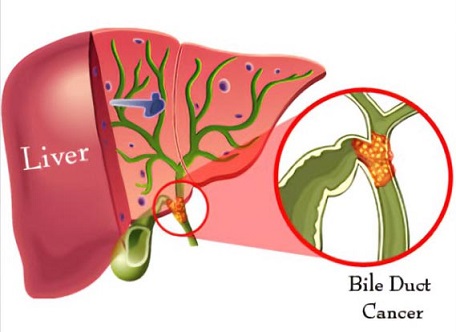Thailand medical researchers identify BubR1 protein as a key player in bile duct cancer progression
Nikhil Prasad Fact checked by:Thailand Medical News Team Jul 21, 2024 1 year, 5 months, 2 weeks, 21 hours, 9 minutes ago
Thailand Medical: Cholangiocarcinoma (CCA), a type of cancer that originates in the bile ducts, remains a major health challenge, especially in northeast Thailand. The high incidence of this cancer in the region is linked to chronic inflammation caused by liver fluke infections. Despite advancements in medical science, the prognosis for Cholangiocarcinoma (CCA) patients remains grim, with current treatments often falling short. A recent study by
Thailand Medical researchers from Khon Kaen University sheds light on a potential new target for treatment: the BubR1 protein. This Medical News report delves into the findings of this study and explores the implications for CCA patients.
 Thailand medical researchers identify BubR1 protein as a key player in bile duct cancer progression
What is BubR1?
Thailand medical researchers identify BubR1 protein as a key player in bile duct cancer progression
What is BubR1?
BubR1, also known as BUB1 Mitotic Checkpoint Serine/Threonine Kinase B (BUB1B), is a crucial component of the spindle assembly checkpoint (SAC) during cell division. This protein ensures that chromosomes are properly aligned before the cell divides, preventing genetic errors that can lead to cancer. Previous studies have linked BubR1 overexpression to various cancers, including liver, lung, and thyroid cancers. This study investigates the role of BubR1 in the progression of CCA.
Study Overview
The researchers analyzed BubR1 expression in both hamster models and human tissues. They discovered that high levels of BubR1 were associated with the early stages of Cholangiocarcinoma (CCA) development in hamsters. Furthermore, patients with high BubR1 expression had significantly shorter survival times compared to those with lower levels.
Key Findings
-BubR1 Expression in Hamster Models
In hamster models, BubR1 expression was low in normal bile ducts but increased significantly in tissues showing early signs of Cholangiocarcinoma (CCA). This suggests that BubR1 could be used as an early marker for cholangiocarcinogenesis.
-BubR1 in Human CCA Tissues
The study also examined human CCA tissues and found that BubR1 expression was much higher in cancerous tissues compared to normal bile ducts. Patients with higher BubR1 levels had a poorer prognosis, underscoring the protein's role in cancer progression.
-Impact on Cell Proliferation and Survival
By using specific siRNA to knock down BubR1 expression in Cholangiocarcinoma (CCA) cell lines, the researchers observed a significant reduction in cell proliferation and colony formation. Additionally, BubR1 suppression increased apoptosis (programmed cell death), suggesting that targeting this protein could help control tumor growth.
-Effect on Migration and Invasion
The ability of cancer cells to migrate and invade other tissues is a hallmark of cancer progression. The study found that BubR1 knockdown significantly reduced these abilities in Cholangiocarcinoma (CCA) c
ells, highlighting its potential to limit metastasis.
Synergistic Effects with Chemotherapy
Combining BubR1 suppression with standard chemotherapeutic drugs (gemcitabine, cisplatin, and 5-fluorouracil) resulted in enhanced anti-cancer effects. This combination could potentially lower the required doses of these drugs, reducing side effects and improving patient outcomes.
The Role of MPS1
Another interesting aspect of the study is the co-expression of BubR1 and another SAC protein, MPS1. High levels of both proteins were associated with even shorter survival times, suggesting that a combined therapeutic approach targeting both BubR1 and MPS1 might be more effective.
Future Directions
The study opens new avenues for Cholangiocarcinoma (CCA) treatment, with BubR1 as a promising target. Future research should focus on developing specific inhibitors for BubR1 and exploring their efficacy in combination with existing chemotherapy. Clinical trials will be necessary to determine the safety and effectiveness of these new treatments in humans.
Conclusion
The findings from the Thai researchers provide a glimmer of hope for Cholangiocarcinoma (CCA) patients. By targeting the BubR1 protein, there is potential to improve survival rates and reduce the aggressive nature of this cancer.
The study findings were published in the peer-reviewed journal: Biomedicines.
https://www.mdpi.com/2227-9059/12/7/1611
For the latest on Cholangiocarcinoma, keep logging on to
Thailand Medical News.
Read Also:
https://www.thailandmedical.news/news/chlorogenic-acid-a-promising-hope-for-bile-duct-cancer-treatment
https://www.thailandmedical.news/news/researchers-develop-new-treatment-protocol-for-drug-resistance-advanced-bile-duct-cancer
https://www.thailandmedical.news/news/japanese-researchers-discover-new-biomarker-for-bile-duct-cancer
https://www.thailandmedical.news/news/incyte-secures-fda-priority-review-for-bile-duct-cancer-drug
